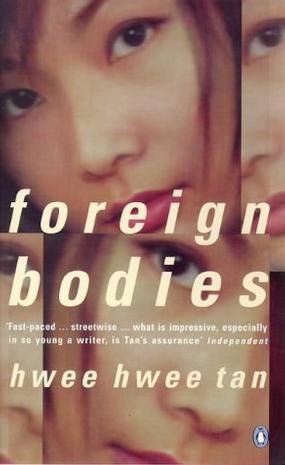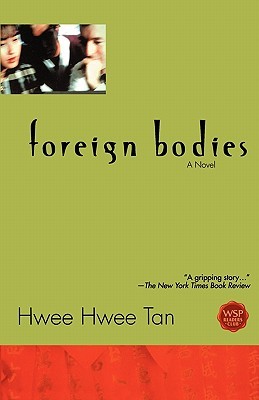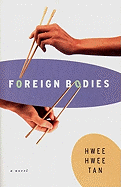
Should you buy this book? No.
Should you borrow this book? No.
“Foreign Bodies” by Tan Hwee Hwee (or Hwee Hwee, Tan) is a Singaporean novel that focuses on a young woman’s struggle to discover who has framed her friend. In doing so, she learns more about herself, the people around her, and just how much her past experiences have affected her.
“Foreign Bodies” is ostensibly for a Singaporean audience, but closer reading reveals that it was meant for international appeal. In addition, Tan Hwee Hwee weaves in Christian themes and symbolism into the plot, further increasing the multi-culturalism of the book. Whether it succeeds or not, however, is another matter.
Some of the elements that made the book worth reading include:
Singaporean voice
There’s no doubting that this is written by a true blue Singaporean. From her description of HDB living to her commentary on the education system, the unique foibles and distinct flavours of Singapore ring true in this book. A comforting familiarity greets you from the first chapter, assuring you that this was written by someone on the same island.
Contrasting setting
The other major setting in this book is England. By giving us a glimpse of both countries, Tan Hwee Hwee highlights just how special Singapore’s culture is, and gives us a sense of gratitude. It also serves to illustrate the difference between Asian and Western values, and magnifies the struggle that one of the other protagonists, Andy, has to go through everyday as an Englishman in Singapore.

Ironically, it is this very differentiation between cultures which leads to some of the more grating aspects of the novel.
Demeaning of Singapore culture
The first few times Singapore culture is described, there’s this humourous deprecation of the sheer illogic of some our practices. Tan Hwee Hwee also goes to great length to explain just what our culture is and why we do it, like Chinese funerals, presumably because the book was meant for international audiences. But by the first quarter of the book, this fun poking at our culture becomes a repetitive whining and eventually devolves into a sarcastic criticism of Singapore culture.
Glorification of England
On the flip side, England is presented as a bastion of logic and taste, where only perfection can hail from its flawless soil. Even Andy, the protagonist from England, is described as a paragon of physical beauty, a model of saintly intentions, and a sterling example of creativity and innovation that we Singaporeans so lack because of our rigid education system.
When paired with the demeaning of Singapore, a disgusting sense of imperialism pervades the novel, leaving you wondering – just why are people staying in Singapore?
A painfully obvious plot twist
The main character, Mei, is a woman. She clearly suffers from some sort of past trauma with her father. The title and theme of the book is “Foreign Bodies.” I won’t spoil the plot for you here, but Mei’s trauma is virtually spelt out within the first chapter.
Yet the book treats her mysterious trauma with such suspense and drama, as if it were a completely unexpected secret that would shock readers into a coma once revealed. It creates a sense of dissociation – you already know what that trauma is. It’s already blatant enough. Why go to such lengths and waste words trying to build up what is already known?

In the end, “Foreign Bodies” disappoints by trying to pander to too many audiences at the same time, losing its focus on why and who it was written for. Perhaps a more global audience would find it a fascinating depiction of Singapore, but I’m not part of that global audience. In that respect, the book fails as a piece of Singapore literature that I can be proud of.
this is so good bok